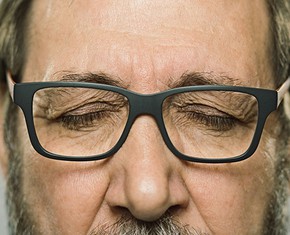The views expressed in our content reflect individual perspectives and do not represent the authoritative views of the Baha'i Faith.
As a Baha’i, I sometimes get this question: what would or could a believer in God do that an atheist would not?
The question always makes me think of this passage from the writings of Baha’u’llah, the prophet and founder of the Baha’i Faith:
The vitality of men’s belief in God is dying out in every land; nothing short of His wholesome medicine can ever restore it. The corrosion of ungodliness is eating into the vitals of human society; what else but the Elixir of His potent Revelation can cleanse and revive it? … The Word of God, alone, can claim the distinction of being endowed with the capacity required for so great and far-reaching a change. – Baha’u’llah, Gleanings from the Writings of Baha’u’llah, p. 200.
Like all Baha’is, I believe in God, so I frequently find myself discussing the role of religion in both the real and virtual worlds.
In those discussions, when people talk about what their faith means to them or has done for them, they sometimes mean that without it, they would never have pondered certain subjects at all, or would not have been as aware of the impact of their words and actions on themselves and others. Atheists, meanwhile, quite legitimately contend that they can be self-aware, kind and moral without recourse to religion.
So here’s my question in this context: how would you know, since the tenets of religion permeate the cultures we live in, and are passed down to us through our parents, teachers, mentors, friends, etc., whether or not they are formally religious? One would have to be raised in a bubble in order for us to know how a human would develop completely free of religious or spiritual influences.
But that’s a different essay. What I’d like to focus on here is faith as a transformative element in an individual’s life.
Experience leads me to believe that too few people (religious or not) actually DO consider the consequences of their behavior. Still, I prefer to think that every thoughtful person is aware, to some degree, of that impact. Where religion, faith or spirituality makes a difference is in what factors we take into account, what premise we start from, and what we understand to be the moral goals of the choices we make.
An online discussion of mockery provided an object lesson as an answer to the original question. On an anti-theist site I once frequented, a poster celebrated having offended her Christian in-laws by replacing the baby Jesus in the nativity they had given her family with a spaghetti noodle (a nod to the Flying Spaghetti Monster spoof god of the Pastafarians). While the original poster and most of the commenters felt this was neither discourteous nor unkind, the teachings of the major world religions would put that action out of bounds.
I have an affinity for sarcasm, but because I’m striving to internalize and live by the teachings of my Faith, my behavior ”goalposts” are in a different place than someone who does not share my beliefs. My Faith provides a benchmark for kindness, which I may or may not meet, depending upon how faithful I am to those teachings. My struggle with this brings me repeatedly back to this passage from the writings of Baha’u’llah:
Every word is endowed with a spirit … One word may be likened unto fire, another unto light, and the influence which both exert is manifest in the world. Therefore an enlightened man of wisdom should primarily speak with words as mild as milk, that the children of men may be nurtured and edified thereby and may attain the ultimate goal of human existence which is the station of true understanding and nobility. – Baha’u’llah, Tablets of Baha’u’llah, pp. 172-173.
Let’s look at this in context with the noodle-tivity: my first concern would be for the impact of my behavior on the other people involved—in this case, a spouse’s parents. Now perhaps the original poster didn’t care much for her in-laws, but her explanation was that the insult wasn’t aimed at the spouse’s family, but at their faith. As one of the commenters put it: “Showing disrespect for people and showing disrespect for books of spurious origin are two very different things. Books and traditions are not humans, they don’t have unalienable rights or feelings.”
This begs the question of who, then, is the real target of the disrespect? Faith (or any other ideology) can’t be hurt or alienated by any amount of noodles or mockery. Only people can. So, what is the point of being unkind or hurtful to an ideology? More to the point, how can you mock a person’s beliefs without affecting that person? Obviously, the real goal is to affect the feelings of the person who holds the beliefs such that they change them.
I have asked many times if a mocker ever encountered a ”mockee” who changed their beliefs because they were shown disrespect. I’ve also asked a related and more significant question: has the mocker ever changed their own deeply held beliefs or worldview (or what they ate for lunch) because someone they loved and respected, much less a complete stranger, mocked them? Would they?
This is a two-edged principle for a believer; the teachings of every revealed Faith from the oldest to most recent give moral and spiritual guidance not just for what a believer should not do, but what they should do. So here is one answer from the Baha’i teachings to the original question:
Act in accordance with the counsels of the Lord: that is, rise up in such wise, and with such qualities, as to endow the body of this world with a living soul, and to bring this young child, humanity, to the stage of adulthood. So far as ye are able, ignite a candle of love in every meeting, and with tenderness rejoice and cheer ye every heart. Care for the stranger as for one of your own; show to alien souls the same loving kindness ye bestow upon your faithful friends. Should any come to blows with you, seek to be friends with him; should any stab you to the heart, be ye a healing salve unto his sores; should any taunt and mock at you, meet him with love. … Such is the essence of God’s admonitions … – Abdu’l-Baha, Selections from the Writings of Abdu’l-Baha, p. 34.
















Comments
Sign in or create an account
Continue with Googleor